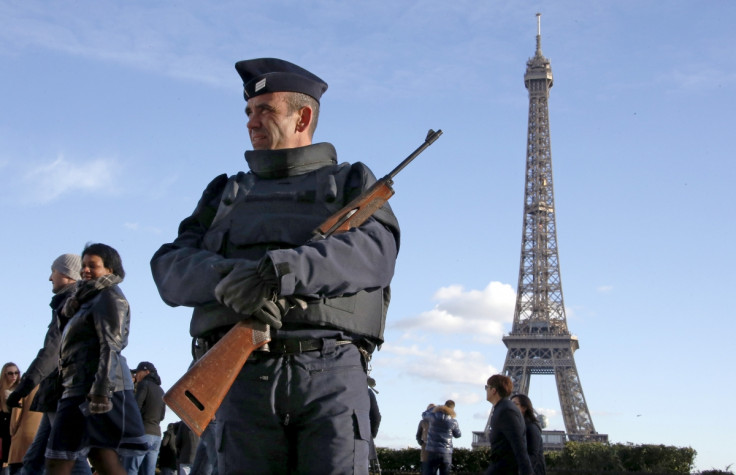Europe should shut down Saudi Arabia-sponsored media hate networks if it wants to beat Isis

In November, 10 months after the violence that targeted French satirical newspaper Charlie Hebdo, Paris was hit once again by a series of attacks that shocked the entire world. Since then, many Europeans have started to feel that an enemy might be lurking in their own countries and no place can be considered safe any more. The response of French President Francois Hollande has been characterised as a hard-line approach, as he declared his country to be at war with Islamic State (Isis), the organisation that claimed responsibility for the attacks.
All too often we see our respective governments responding to the threat of terror with violence and military action but this neglects the fact that this terror is driven by a particular ideology. The attacks we are seeing on home soil, and indeed in the Middle East, are but symptoms of a widely spreading disease. We must ask ourselves how we can eradicate the virus that is proliferating in both the West and the Islamic world? Surely, we cannot just bomb an ideology out of existence?
It has become increasingly apparent that the ideology IS (Daesh) and other jihadi organisations are built upon is the same fundamentalist doctrine promoted and financially backed by the Saudi state.
This literalist interpretation of Islam is not only violent but sectarian in nature; it is precisely the works of this "Saudi" ideology that inform the modus operandi of these multiple jihadi groups. Many have acclaimed this ideology as Wahhabism, Salafism, and so on, as the debate continues but what is clear is that it is intrinsically, funded, promoted and held at the root of the Saudi state.
Financial links
The Saudi state has worked hard and invested huge amounts of money into spreading this virulent and intolerant ideology throughout the world. It is documented that they have spent well over $100bn (£66bn) to propagate it abroad over the past 30 years. Given these strong doctrinal and financial links between the Saudi political-religious establishment and jihadi armed groups, it should come as no surprise that some prominent jihadis have had or have direct ties with the Arabian monarchy.
However what is surprising is how easy it is for disseminators of this ideology to have a platform in Europe. It is evident all kinds of media play a role in sponsoring the cause of violent jihad. One of the latest cases regarding the infiltration of this ideology in Europe, though, should raise some questions as to whether certain messages should be allowed to circulate so easily.
Safa and Wesal are two TV stations that have become infamous for contributing to the diffusion of hate and sectarianism within the Islamic world. Although they are based in Egypt, it is reported that their funding comes from Saudi Arabia among other gulf states. Their goal is to propagate a hateful and fundamentalist interpretation of Islam and have channels that disseminate this hate speech in five languages: Arabic, Kurdish, Farsi, Indonesian and Hausa.
A quick scan of their Twitter feed reveals a timeline contaminated with primarily anti-Shia propaganda and hatred. A hatred that has led to the killings of Muslims, Yazidis, Shias, Sufis, the desecration of their holy shrines and their religious way of life. Further, they regularly post about the heresy of Shias and other Muslim minorities in addition to bringing guests on their shows who are known jihadi preachers. One of the most disconcerting aspects of their agenda is that they call upon the Sunni Arabs of Ahwaz in south-western Iran to take up arms and fight jihad against the Shia and the "heretical" regime.
In 2010, Egyptian communications company Nilesat temporarily stopped Safa TV – together with other channels – from broadcasting in the country on the grounds the channels were spreading sectarianism and extremism. As broadcast resumed a couple of weeks later, the channel kept on carrying forward its sectarian message until today.
Violent rhetoric
A few days ago, the director of Safa TV, Riyadh al-Wad'an, was in Copenhagen to attend a conference in which it was able to propagate its sectarian jihadi agenda freely and openly. Considering he stands for these values that are in sharp contrast with those of tolerance, moderation and liberalism in the West, it is of great concern that he is allowed to disseminate this violent rhetoric on European soil with little to no opposition.
Knowing these channels play a significant role in constructing perverse meanings of Islam, propagating jihadism and the dissemination of a radical ideology, isn't it time we stop providing them with a platform in Europe, or at least use our freedoms of debate and dialogue to expose and oppose such a tyrannical ideological views?
This is just one instance of how sectarianism, hate and extremism can make their way into Europe almost unnoticed. The doubt remains as to whether authorities in the continent are aware of the ways by which hard-line messages can be spread, and whether they are going to take more effective steps to counter them.
How is it such an ideology that opposes the fundamentals of democracy can enter Europe using the very tenants of democracy which it opposes and be left almost unchallenged? Yes, extremism should be fought, first and foremost, not just by sending more fighter jets, but by stopping those who sponsor it from circulating freely.
Muhbeen Hussain is the founder and chairman of British Muslim Youth.
© Copyright IBTimes 2025. All rights reserved.





















